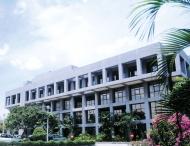Research Center
Research
The Lafarge research teams work closely with customers to understand their needs, developing new products that add value for all players in the building industry and contribute to more sustainable ways of building.
Customer-Oriented Research |
|
|
Lafarge's research orientation is driven by customers' needs. Understanding how customers use its products enables Lafarge to develop innovative, high-performance solutions. Lafarge's research and marketing teams build close relationships with the construction industry to create breakthrough products that add value for everyone.
One example: Artevia®, a range of decorative outdoor concretes, is among more than 500 different formulations of concrete Lafarge has developed in response to customers' expectations for robustness, resistance, durability, esthetics and control of setting and hardening. |
Artevia® decorative outdoor concretesArtevia® decorative concretes are designed for outdoor applications. They offer many advantages:
|
Toward Sustainable Construction |
|
|
Lafarge R&D teams work to develop environmentally friendly products in order to:
|
Lafarge Research CenterLafarge boasts the world's leading research center for building materials. Fundamental and applied research focuses on 3 main areas:
Lafarge Technical CentersLafarge Cement has technical centers in:
Working at CTECBernhard Köck, Process Manager "In 1995, a handful of experts were responsible for providing support to 5 factories in 3 European countries. By 2007, CTEC (Cement Technical Center for Central and Eastern Europe ) has become a recognized center of excellence, working on behalf of 40 factories in 14 countries on 3 continents. My colleagues come from 20 different countries and speak 16 languages." |
Centralizing research, decentralizing development |
|
|
Lafarge R&D is organized to optimize research while responding through development to the needs of local markets.
The Lafarge Research Center, the world's leading research center for building materials, is staffed by 200 researchers and houses state-of-the art labs, pilot workshops, and buildings for large-scale testing.
A decentralized network of technical centers enables Lafarge to adapt product innovation to local markets. Working with production sites, country teams and main business units, they develop products that are suited to local needs and improve industrial performance. |

ATC (Asian Technical Center), Kuala Lumpur |








